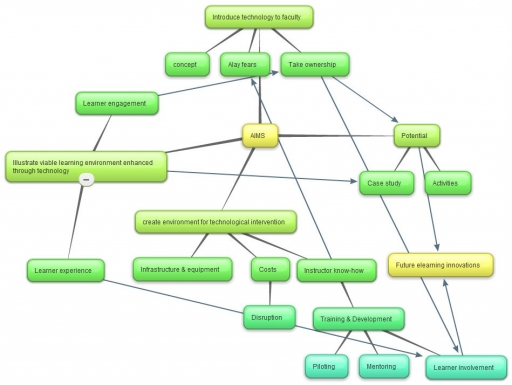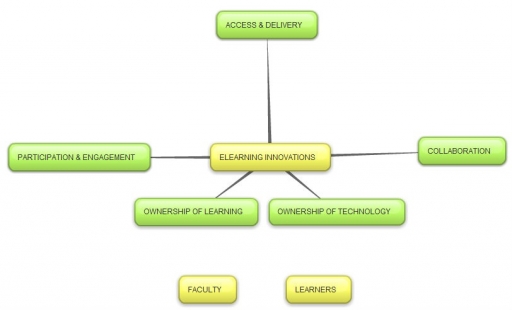Hi All
I am going to make a few comments about my experience of podcasting during Unit 8.
I was initially very eager to get stuck into this activity, it's no secret that the practical elements of this course have stood me well, where the theoretical elements I have had a harder time of handling. Obviously things like e-portfolios, wiki's and podcasts have an immediate impact on my skill and knowledge base, presenting immediate opportunities of intergration to my classroom. The theory will stand me in good stead for the future I know, but not working in an elearning role I am finding it hard to link it in.
I was also a bit apprehensive that the Christmas holidays would eat into this unit. However, shortly after Christmas I followed the podcasting instructions, downloading Audacity. I have never used recording software before but I'm very capable in the windows environment so a few clicks and I had test project complete. I noticed a buzzing sound in the background and deducted that it was because I was using the built in microphone - I made a mental note to seek out the mic I bought on ebay! I also registered with switchpod, all this stuff is quite time consuming, so any learner with previous podcasting experience was at a distinct advantage.
Next, I attempted to download the mp3 conversion software required, I constantly got a 403 message. I checked the tech forum which was full of issues and decided to post to our own Unit 8 forum. I got no reply, well not for ages, I went back to the tech forum to see if there was anything else I missed, there was a lot going on. I took a break from the laptop and starting thinking about what I could podcast on. I wanted the topic to be interesting even if I wasn't!! I also wanted to personalise it and give further insight to where I coming from which is all important in this online community. I decided upon the area of introducing elearning activites into a traditional training context. A lot of our study thus far is based around courses specifically set up in an elearning context, what about the challenges involved in introducing elearning into a course that has always been instructor led?
Catherine posted the zip folder for me and within a few minutes I was up and running. Many thanks. From recording a radio station as a kid I knew I would hate my voice, so I decided to write a loose script seperated into chapters. I targeted 6-8 minutes as an easy listening duration. I made myself comfortable as I believe your posture, position, alertness etc. can all affect the tone and pitch. I spoke slowly and distinctly as if I was talking to my brother in Oz. I stopped and listened after each chapter. I thought what a pity it was that other users were not able to use the Audio option in the pre-Christmas chat we had. Towards the end of the recording I felt I spoke more naturally, emphasizing important phrases etc. rather then the rather robotic start.
I set up the file with no issues in switchpod and posted the link in the Course Wiki. I remebered there were certain rules or guidelines as to how we post on a wiki but I couldn't recall them so I hope I didn't make any faux pas.
Although, I am an avid podcast listener as I love the radio, creating a podcast itself was completely new to me. This meant I had an opportunity to think about how it can be involved in elearning and blended learning. I agree it's no "silver bullet", but one area where I will find it useful is in the area of listening to experts, that would otherwise be unavailable to the learners. Before this activity I dirercted my class to the Business podcast on RTE Radio 1 http://www.rte.ie/radio1/thebusiness/index.html , as 2 widely recognised business people were to be interviewed. I recently ran a Guest Speaker day where 3 senior managers spoke with my class, it was an excellent event but a lot of work. Imagine if i had recorded this event for future classes!?
I am eager now to move onto to 8.2 before I fall to far behind on Unit 9.
Karl

